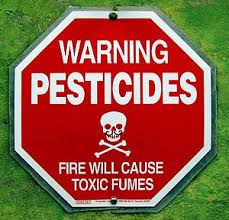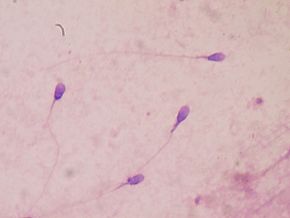 Yikes! While writing the last post, I came across a recent study of another pesticide linked with the development of Parkinson's disease. While the weed killer paraquat has long been linked to Parkinson's disease, certain other pesticides are also linked - such as chlorpyrifos.
Yikes! While writing the last post, I came across a recent study of another pesticide linked with the development of Parkinson's disease. While the weed killer paraquat has long been linked to Parkinson's disease, certain other pesticides are also linked - such as chlorpyrifos.
Chlorpyrifos is a widely used insecticide in agriculture. While now banned for household use, homeowners used to use it (e.g., in the product Raid) for insect control for many years.
The study researchers (at the medical school at UCLA) found that long-term residential exposure to chlorpyrifos is associated with more than a 2.5 times increased risk of developing Parkinson's disease. They studied humans, mice, and zebrafish to reach their conclusions. They found that chlorpyrifos damages dopamine-producing brain cells - which are the same cells damaged in Parkinson's disease.
From Medical Xpress: Widely used pesticide linked to more than doubled Parkinson's risk
A new study from UCLA Health has found that long-term residential exposure to the pesticide chlorpyrifos is associated with more than a 2.5-fold increased risk of developing Parkinson's disease. ...continue reading "Another Widely Used Pesticide Is Linked to Parkinson’s Disease"

 Happy Holidays!
Happy Holidays! Great news for cheese lovers! A recent study found regularly eating full-fat (high-fat) cheese and cream was associated with a lower risk of developing dementia. Some examples of full-fat cheese include cheddar, Swiss, Parmesan, Brie, Gouda, Provolone, Colby, Havarti, Mozzarella (full-fat), and cream cheese.
Great news for cheese lovers! A recent study found regularly eating full-fat (high-fat) cheese and cream was associated with a lower risk of developing dementia. Some examples of full-fat cheese include cheddar, Swiss, Parmesan, Brie, Gouda, Provolone, Colby, Havarti, Mozzarella (full-fat), and cream cheese. It turns out that wearing silicone wristbands is a great way to measure a person's exposure to pesticides that are inhaled or absorbed in the skin - whether you are farmer, living near pesticide treated farm fields, a pet owner, or a member of the general population (consumer). Another source of pesticides is food and water, but the silicone wristbands don't measure that.
It turns out that wearing silicone wristbands is a great way to measure a person's exposure to pesticides that are inhaled or absorbed in the skin - whether you are farmer, living near pesticide treated farm fields, a pet owner, or a member of the general population (consumer). Another source of pesticides is food and water, but the silicone wristbands don't measure that.


 We all know sitting too much is not good for our health. But for many of us, it's our reality - sit all day at work, and then come home and relax by sitting all evening. But there is some good news. A recent
We all know sitting too much is not good for our health. But for many of us, it's our reality - sit all day at work, and then come home and relax by sitting all evening. But there is some good news. A recent